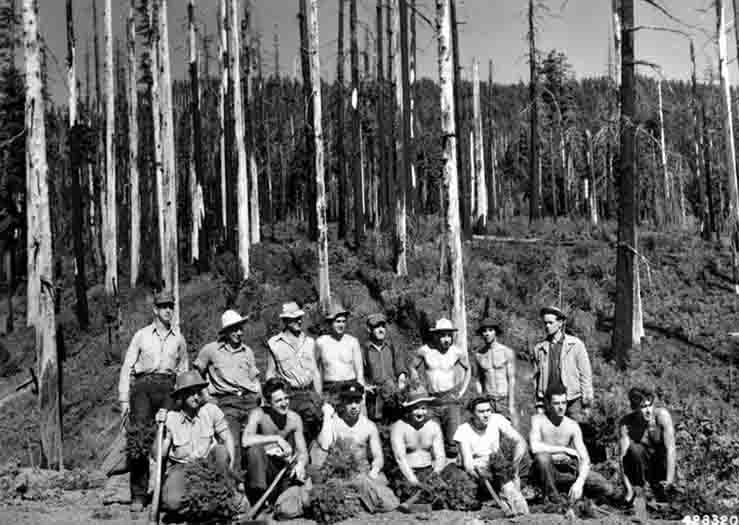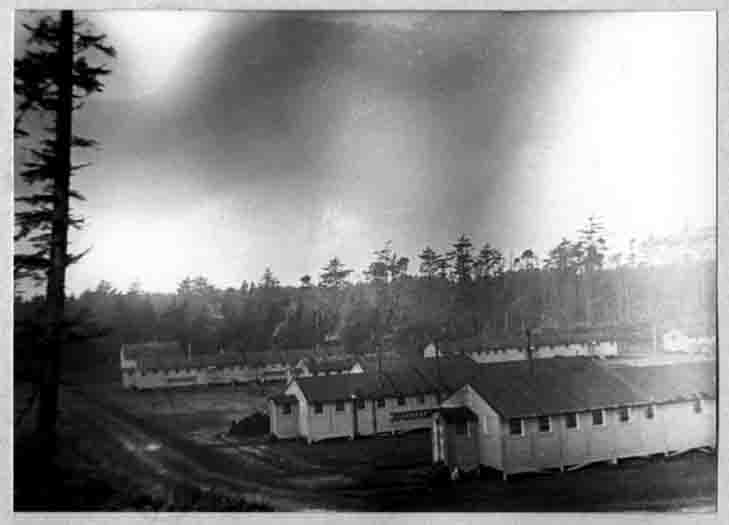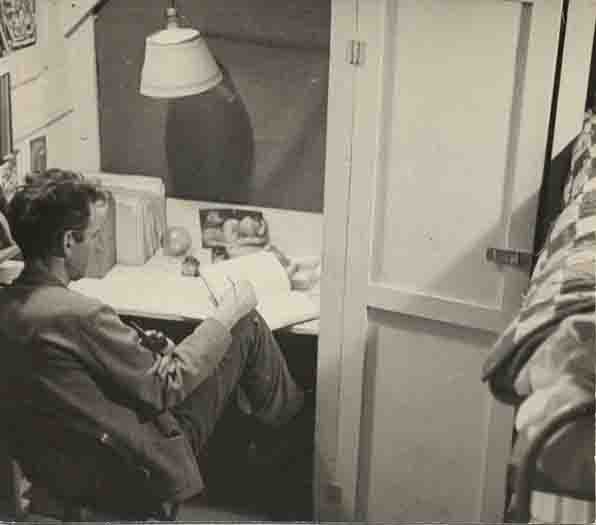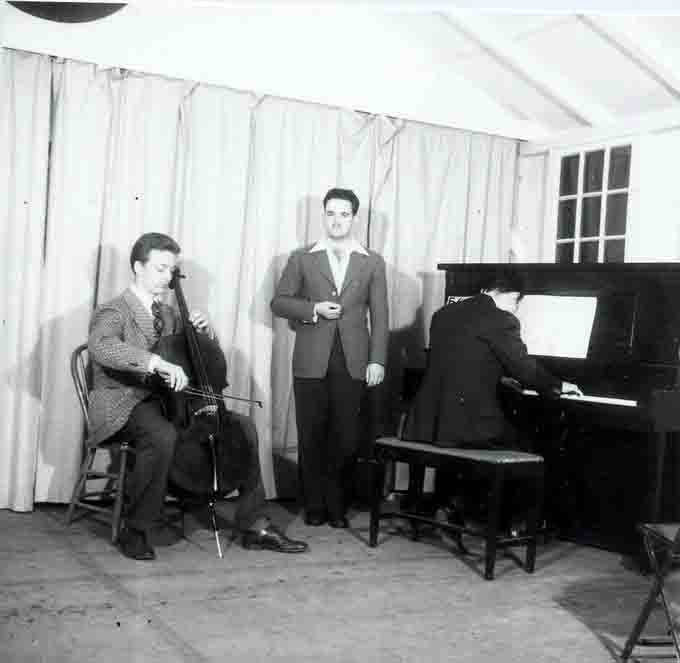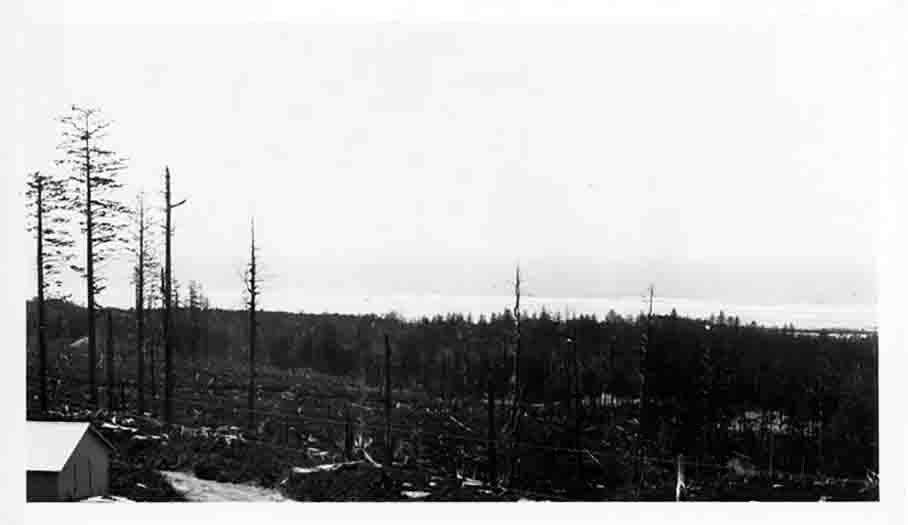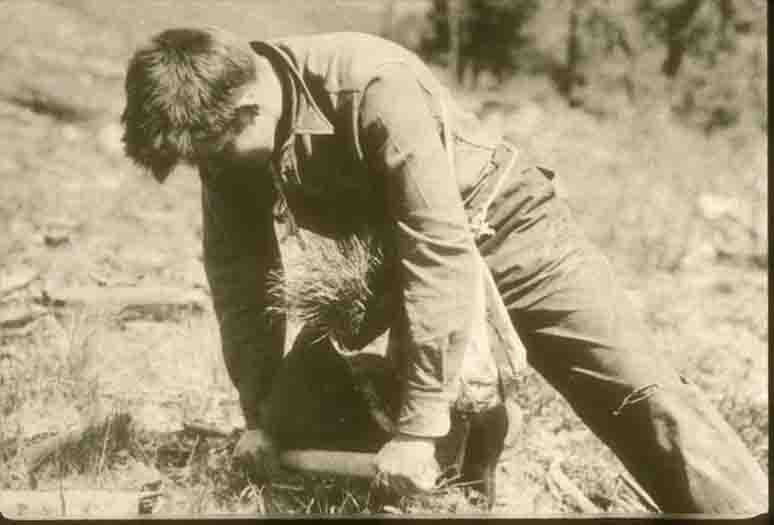WWII Conscientious Objectors' Camp & Angell Job Corps
335 NE Blodgett Rd, Yachats, OR 97498
Where the Beat Generation Got its Start
Could a place with a dull name like Civilian Public Service (CPS) Camp No. 56 really be the birth place of the counter-culture phenomenon of the 50s and 60s? During World War II a camp for Conscientious Objectors (COs) was established at what is now known as Angell Job Corps. The camp back then was also referred to as The Fine Arts Camp.
Hoping to avoid the dismal treatment COs received during World War I several peace churches, including the Quakers, the Mennonites and the Church of the Brethren, proposed utilizing COs to finish jobs that had been started by the CCC. The Brethren ran Camp 56 who's main project involved replanting 9,000 acres of trees that had burned on the Blodgett tract in 1936. Men worked 8 1/2 a day, six days a week planting three year old trees at eight foot intervals. They did this even in the winter when it rained 100 inches. Five men from the camp were killed while working, 26.3% of all the deaths in CPS camps throughout the country.
Soon after men started entering CPS camps it was proposed that educational special interest groups be brought together to study different subjects. Many at at this camp were aspiring poets, fiction writers, artists, actors and musicians. After work and on Sundays they were permitted to pursue their arts. The COs had much different backgrounds than their CCC predecessors. Of 127 COs the camp had in 1944 one had a Ph.D, four had masters degrees, ten had bachelors degrees, and another 33 had had some college.
Among those who served at the camp were Vladimir Dupre, administrative assistant for the magazine "Poetry," William Eschelman, president of Scarecrow Press, Broadus Erle, founder of the New Music String Quartet, and Martin Ponch, founder of Interplayers, a leading theater group in San Francisco that had its inception at the camp. The Untide started out as a clandestine newsletter at the camp. It became a press that published several books, including works by major poets such as William Everson and Kenneth Patchen. Several magazines were published at the camps. One, the Illiterati, was first printed at a camp in Cascade Locks. However, all of its first issues were destroyed by the Post Office because of the erotic nature of some of the work.
Policy required that COs be assigned to camps at least 200 miles from their homes, so many at the Yachats camp were originally from California. When they returned they began the San Francisco Renaissance, also known as the Beat Generation.
***
This website, yachats-history.com, is a work in progress.
I'm hoping to gather more stories about this location. If you have good ones, email me. THANKS!
